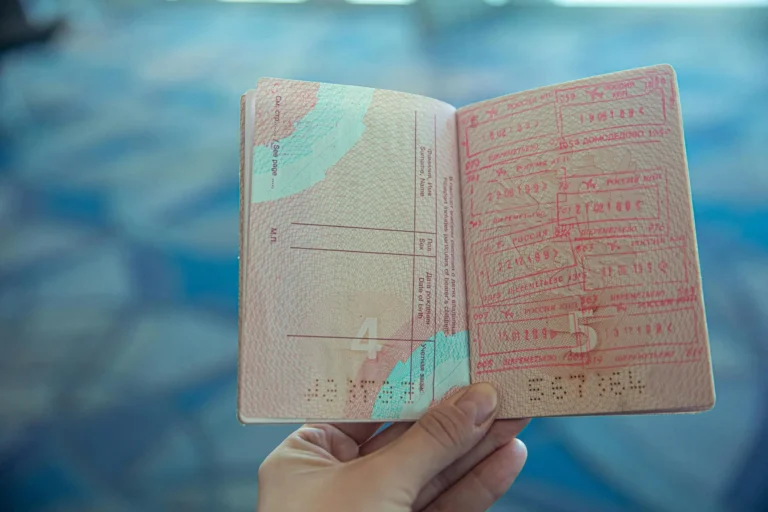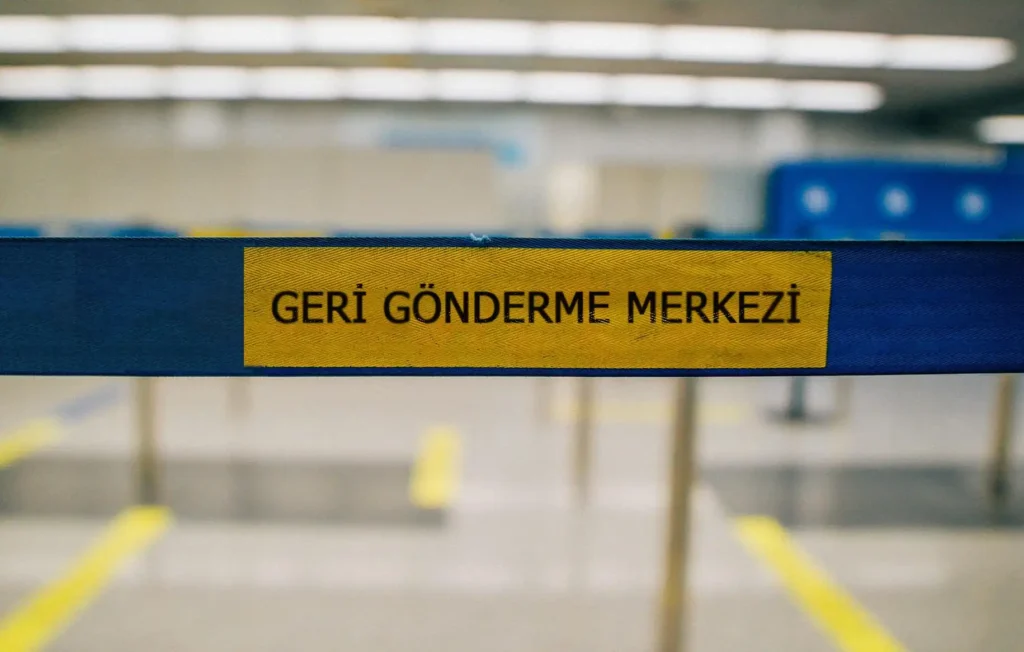Erdal Nuhbasa – Law and Consulting Firm – Legal Services

Foreign nationals residing in Turkey may face deportation for various reasons. This process is not merely an administrative action but a serious legal matter with significant consequences. Therefore, we recommend that you contact Turkish deportation lawyers as soon as possible while following the process.
Once you have been notified of the deportation decision, you have only (7) seven days to appeal. During this time it is possible to stop the decision while appealing correctly. It is also very important to inform the Immigration Authority of the case you have filed with the administrative court to stop the deportation order.
Deportation is a decision which is taken by the governorship for removing foreigner from Turkey. According to the Law on Foreigners and International Protection No. 6458, the Directorate General of Migration Management (DGMM) may issue a deportation order under certain conditions.
A deportation order is usually issued when a foreign national is found to be violating visa or residence conditions, posing a threat to public order or security, or working without work permit.
When a deportation order is given, the person is informed about it in writing. They have 7 days to appeal the decision in court. While waiting for the result, the person may stay free or be taken to a removal center if there’s a risk that they might try to escape. Some people—like children, victims of human trafficking, or those who may face serious danger in their home countries—have special protection and usually cannot be deported.
According to the Directorate General of Migration Management, a foreign national may be deported if they meet one or more of the following criteria:
For a more detailed list, please visit the official website of the Directorate General of Migration Management.
Even If some foreigners meet the conditions listed in Article 54 of the Law on Foreigners and International Protection (which usually allows deportation), they cannot be deported if they belong to certain protected groups:
Once the circumstances justifying protection cease to exist, authorities may proceed with issuing a deportation order. Each case must be assessed individually and may require legal consultation.
“I have been given a deportation order, can I cancel it?” is one of the most frequently asked questions by foreigners. I will briefly explain what kind of rights people who have been given a deportation order have against this decision. The foreign national or their lawyer must be formally notified of the deportation ruling and its justifications.
After you have deport decision you have 7 days to appeal in the administrative court. Decision will be given within 15 days and there is not any chance to appeal this decision. During the legal procedure the foreigner can not be deported.
To summarize briefly again:

Foreign nationals subject to deportation are often placed in a Removal Center (GGM). However, this detention must be lawful. Detainees must be allowed to contact their lawyers and exercise their right to appeal.
A foreigner can be kept in a removal center for up to 6 months. If the deportation process takes longer because the person doesn’t cooperate or doesn’t give correct information about their home country, this period can be extended for another 6 months. Foreigners who are kept in removal centers have the right to object to this decision. They can appeal to the Criminal Judge of Peace to review the detention.
However, appealing against being held in a removal center does not stop the deportation process. This means that even if a foreigner is released from detention, they can still be deported. Deportation is only paused if the foreigner files a lawsuit to cancel the deportation decision itself, not just the detention.
If you receive a deportation order in Turkey, the government may give you a chance to leave the country on your own. In most cases, you will be given between 15 to 30 days to leave. This time will be clearly written in the deportation decision. You will also receive a document called Exit Permit.
If you leave Turkey within the time given and show your Exit Permit, you might not receive an entry ban, which means you could be allowed to come back in the future.
However, some people are not allowed to leave voluntarily. These include:
If you do not leave Turkey within the time allowed, you could be detained and forced to leave. You may also be banned from coming back for a long time. Read related article about How to Revoke Entry Ban?
An Administrative Detention Order (İdari Gözetim Kararı) is a legal decision made by Turkish Governor’s Office (Valilik) to keep a foreign national in custody while their deportation process is being carried out.
When a foreigner is at risk of being deported, the Turkish authorities may decide to hold them in a removal (deportation) center. This is not the same as being arrested for a crime—it’s an administrative measure, used to make sure the person doesn’t escape or hide before leaving the country.
The duration of administrative detention at the removal center (GGM) cannot exceed six months. However, it may be extended for a maximum of six months in cases where the deportation proceedings cannot be completed due to the foreigner’s non-cooperation or failure to provide accurate information or documents.
The Administrative Detention decision is re-evaluated by the governorate every month. However, if deemed necessary by the governorate, the evaluation can be made without waiting for the thirty-day period.
If it is decided by the Governorship that there is no need for administrative detention, this decision is notified to the Ministry of Interior and if the MOI approves it, the administrative detention order on the foreigner is lifted. These foreigners shall be subject to alternative obligations to administrative detention. These obligations can be:
These measures cannot last more than 24 months in total. If the foreigner does not follow the rules, they can be detained again. If a foreigner is required to wear an electronic monitor, they can ask the criminal court to review the decision. The court will make a decision within five days, and that decision is final.

If a foreigner is placed under administrative detention in Turkey, they have the right to challenge this decision. The person detained, their lawyer, or legal representative can file an appeal to the Criminal Court of Peace. Filing an appeal does not stop the detention, but the court will review the case quickly.
If the appeal is first given to the immigration office, it must be forwarded to the court right away. The judge must make a decision within five days, and that decision is final. If the situation changes or there is no longer a reason for detention, another appeal can be submitted.
Foreigners can enter Turkey with a legitimate visa even if they have a deportation order against them. A “Visa with Annotation” (Özel Meşruhatlı Vize) is a special type of visa granted to foreigners, allowing them to enter Turkey even if they have previously been subject to a deportation order.
Foreigners must apply for annotated visa at Turkish consulates in the country where the he/she is residing. After evaluating the application, authorities will issue the visa for a duration that fits the applicant’s situation. This process provides a legal pathway for people who would otherwise be restricted from entering Turkey due to deportation decisions.
Deportation proceedings directly affect basic human rights. Working with an experienced immigration lawyer can prevent delays and minimize the risk of deportation. Filing release requests from Removal Center in time is important because once you are our of Turkey everything could be harder for you. As your lawyer we ensure timely court petitions, and gather necessary documentation for a strong defense.
As a lawyer experienced in deportation proceedings in Turkey, I am committed to defending the legal rights of foreign clients effectively. If you have received a deportation order, contacting me without delay is crucial. Legal timeframes are very short—every hour counts. You can reach me by email or whatsapp for assistance.
No. You have 7 days to appeal the decision, and deportation cannot be carried out during this period.
Yes, it can be annulled by a court if a valid defense is presented.
Typically, entry ban is imposed. You can appeal ban decision and remove entry ban or you can get annotated visa to enter to Turkey.
In Turkey, the cost of deporting a foreigner is primarily the responsibility of the individual being deported. If the person has enough money, they must pay for their own travel. If they have no money at all, the government covers the expenses. In cases where the foreigner has limited funds, part of their money is kept for basic needs, and the rest is used toward travel costs. Any remaining expenses are paid by the government.
If these costs are not repaid, the individual may be banned from reentering Turkey until payment is made.
Contact Now!